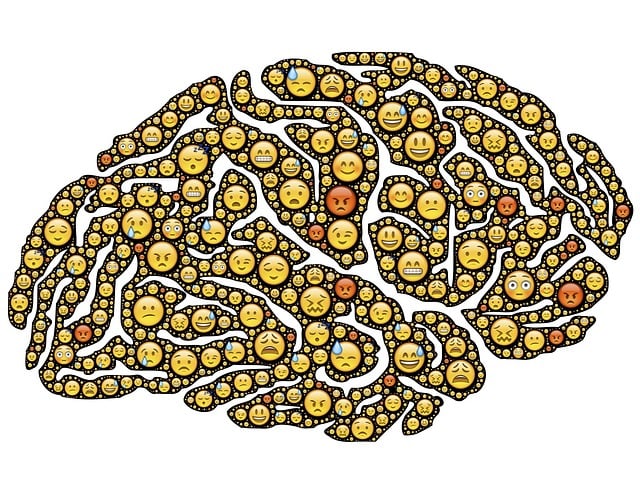Mental wellness is a holistic state affected by emotional, psychological, and social factors, with therapy playing a crucial role in managing conditions like Broomfield Panic Disorder (BPD). Techniques such as journaling, stress management, cultural care, and podcasts offer effective tools for enhancing mental health. Journaling, particularly beneficial for BPD patients, involves expressing thoughts to gain control, recognize patterns, and make informed decisions about their mental state. Integrating mindfulness and emotional intelligence, journaling helps individuals explore emotions, identify triggers, and regulate them, ultimately improving mental wellness through self-awareness and challenging negative thought patterns.
Mental wellness is integral to our daily lives, yet often overlooked. Understanding its impact on our well-being, especially in managing conditions like Broomfield Panic Disorder (BPD) and anxiety attacks, is crucial. Journaling emerges as a powerful tool for navigating these challenges. This article guides you through the process of using journaling as therapy for BPD and anxiety, offering insights into its benefits, techniques, and creating a personalized routine to enhance mental wellness.
- Understanding Mental Wellness and Its Impact on Daily Life
- The Power of Journaling for Anxiety Management
- Broomfield Panic Disorder: Symptoms and Coping Strategies
- Creating a Therapeutic Journaling Routine
- Techniques to Enhance Journaling for Personal Growth
Understanding Mental Wellness and Its Impact on Daily Life

Mental wellness encompasses our emotional, psychological, and social well-being—it affects how we think, feel, and act in our daily lives. Understanding mental wellness is crucial because it profoundly influences our ability to cope with stress, make choices, and relate to others. For many individuals struggling with issues like Broomfield panic disorder and anxiety attacks, seeking therapy can be a game-changer. Professional treatment, often involving techniques tailored to each person’s unique needs, helps manage symptoms and improve overall mental wellness.
In today’s fast-paced world, stress management has become paramount for maintaining good mental health. Workshops organized by various groups focus on teaching effective coping strategies, while cultural sensitivity in mental healthcare practices ensures that individuals from diverse backgrounds receive support tailored to their specific needs. A Mental Wellness Podcast Series Production can also offer valuable insights and share success stories, inspiring listeners to prioritize their mental well-being.
The Power of Journaling for Anxiety Management

Journaling has emerged as a powerful tool in the arsenal of mental wellness management, especially for those dealing with anxiety and panic disorders like Broomfield Panic Disorder and Anxiety Attacks Therapy. This simple yet profound practice allows individuals to gain deeper insight into their thoughts, emotions, and triggers, which is crucial for effective anxiety management. By putting pen to paper, one can externalize chaotic or overwhelming feelings, providing a sense of control and perspective.
In the context of Broomfield Panic Disorder therapy, journaling encourages individuals to identify patterns in their anxiety attacks, helping them recognize specific triggers and develop strategies to manage these triggers. It also facilitates self-reflection, enabling people to assess their risk factors and make informed decisions regarding their mental health. Healthcare providers can enhance their support by incorporating journaling into treatment plans, alongside essential techniques like conflict resolution training for patients and cultural competency development for professionals, as part of a comprehensive Risk Assessment for Mental Health Professionals.
Broomfield Panic Disorder: Symptoms and Coping Strategies

Broomfield Panic Disorder is a condition characterized by sudden and repeated episodes of intense fear or anxiety, known as panic attacks. Symptoms include rapid heartbeat, sweating, trembling, shortness of breath, dizziness, and a feeling of impending doom. These attacks can be debilitating and may lead to avoidance behaviors, where individuals try to steer clear of places or situations they fear could trigger another episode.
Coping with Broomfield Panic Disorder involves a combination of therapy approaches, such as cognitive-behavioral therapy (CBT), which helps individuals identify and challenge negative thought patterns contributing to anxiety. Building empathy for oneself and fostering inner strength through mindfulness practices can also be beneficial. Additionally, conflict resolution techniques teach effective strategies to manage stress and triggers, promoting better mental wellness over time.
Creating a Therapeutic Journaling Routine

Creating a consistent journaling routine can be a powerful tool for managing and overcoming mental health challenges, such as Broomfield Panic Disorder and Anxiety Attacks. Dedicate a quiet moment each day to express your thoughts and emotions through this therapeutic practice. Start by setting realistic goals, like writing for just 15 minutes, and choose a space where you feel comfortable and safe. Consistency is key; regular journaling allows you to track your progress, identify triggers, and gain valuable insights into your mental state.
Incorporating mindfulness meditation techniques during your journaling session can enhance its benefits. Take a moment to breathe and centre yourself before beginning. Reflect on your day, acknowledging both the positives and challenges. This practice not only improves self-awareness but also acts as an effective stress management workshop, helping you develop healthy coping mechanisms. Over time, you may explore various stress reduction methods inspired by your journal entries, ultimately fostering a deeper sense of calm and resilience.
Techniques to Enhance Journaling for Personal Growth

Journaling is a powerful tool for personal growth and an excellent practice to incorporate into your Mental Wellness Journaling Exercise Guidance. It allows individuals to explore their thoughts, emotions, and experiences in a safe and private space. One technique to enhance this process is by incorporating mindfulness practices. Being present and observing your feelings without judgment can help individuals gain a deeper understanding of their triggers, especially those related to Broomfield Panic Disorder and Anxiety Attacks Therapy. For instance, writing down physical sensations during an anxiety attack might reveal patterns that lead to better emotional regulation strategies.
Additionally, integrating Emotional Intelligence into journaling can further benefit personal growth. Reflecting on your emotions and analyzing their underlying causes fosters a sense of self-awareness. You can use journaling prompts related to emotional regulation, such as identifying and challenging negative thought patterns, which is particularly beneficial for managing anxiety. By combining these techniques, individuals can transform their journaling practice into a therapeutic journey, improving overall mental wellness and gaining valuable insights into themselves.
Mental wellness journaling can be a powerful tool in managing anxiety, particularly for those experiencing symptoms of Broomfield Panic Disorder. By regularly documenting thoughts, feelings, and experiences, individuals can gain valuable insights into their mental health journey. This article has explored various techniques to enhance therapeutic journaling, from understanding its impact on daily life to specific strategies for coping with anxiety attacks. Incorporating these practices into a structured routine can lead to significant personal growth and improved overall well-being. Remember, the path to mental wellness is unique for everyone, so continue to experiment and adapt these methods to best support your individual needs.














